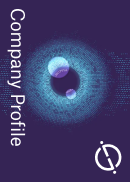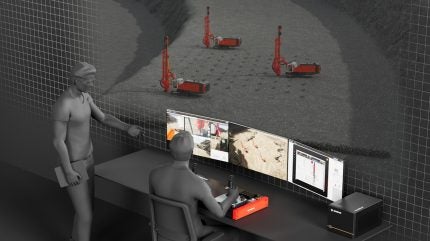
Investment in AI technology is high in the mining industry but quality over quantity is key, agreed panellists at Resourcing Tomorrow.
Moderating a panel on AI and digitalisation in mining, Dennis Gibson, chairman of the US Critical Minerals Association, opened with a reference to the “buzzword” status of AI, as “there is virtually not a conversation these days that does not mention the two letters”.
Access the most comprehensive Company Profiles on the market, powered by GlobalData. Save hours of research. Gain competitive edge.

Your download email will arrive shortly
We are confident about the unique quality of our Company Profiles. However, we want you to make the most beneficial decision for your business, so we offer a free sample that you can download by submitting the below form
By GlobalData
Gibson explained the origins of the popular phrase ‘mine of the future’, which was coined by a Rio Tinto executive in 1992 and is now frequently used in conjunction with AI development.
Mining Technology’s parent company, GlobalData, forecasts that the overall AI market will be worth $909bn by 2030, registering a compound annual growth rate of 35%.
Mining companies have been active in taking advantage of this growth and implementing AI solutions across their operations. Applications range from predictive maintenance, automation, safety and sustainability, with Rio Tinto CIO Dan Evans telling Mining Technology that AI is “vital for gaining competitive advantage”.
However, the avalanche of AI products that have entered the market make it challenging for miners to differentiate between helpful and gimmicky solutions.
AlwaysAI co-founder Marty Beard explained that certain types of AI are more useful to mining than others. “Could there be a term more generically used in the press? There [are] two camps that we see: generative AI, which is enormous databases that aren’t useful for a mine.
“Then there is predictive AI, which is much smaller models that are used case-specific based on real-time data for practical implementation.”
What does mining need from AI?
Mark Frayman, managing partner of Orion Resource Partners, a global alternative investment firm for metals and minerals, provided his perspective after screening emerging AI solutions.
“We probably hear from close to 20 or 30 AI companies a week. Even if it is an interesting piece of AI, it doesn’t mean it is valuable to a miner or can integrate with existing operations. It needs to be something that can be rolled out across the sector with minimal changes from company to company, which isn’t the case for a lot of AI businesses.”
Beard emphasised the importance of “challenging the role of continuous improvement, which doesn’t get you to the next mine. It gets you to the next better process within your current mine.”
According to GlobalData’s survey on mine-site technology adoption in 2024, 8% of miners are already noticing the impact of AI on their operations, while 37% expect AI to impact their operations within the next one to five years.
However, 17.9% believe widespread adoption of AI in mining will take more than ten years and 11.1% think it will never happen.
The panellists agreed that major mining companies are reluctant to risk big assets when piloting AI solutions and a return on investment from digitalisation is crucial.
“Bespoke AI solutions with one-off applications are going to have a hard time getting a foothold in mining,” continued Beard. “The AI companies who will make it understand the annual recurring revenue of their software.”
“Over $2bn has been invested in AI in the mining industry,” said Kal Ruberg, CEO of Karu Advisory. “I would challenge the audience to find $2bn of benefit.”




